A couple days ago, Instapundit linked to this story blaming an increase in off-premises alcohol purchases on the recession:
And there’s another, perhaps somewhat unsettling, trend pushing up Beam’s bottom line: In the wake of the Great Recession, Americans are increasingly drinking at home. According to Commerce Department data compiled by Bloomberg, U.S. spending on alcoholic beverages for off-premises consumption, adjusted for inflation, has gained nearly 13 percent since June 2009, and hit a record in August 2011.
Now, that’s not necessarily bad news for anybody but bar and restaurant owners. But drinking at home is likely to be less of a social activity than raising a glass in public. And it does invoke the disturbing image of men and women across America passed out over piles of unpaid bills at their dinner tables.
Is there anything else at play here in the off-premises purchases? Pay no attention to the nanny state behind the curtain:
In one email, Ruthie’s Bar owner Jean Doublin — whose lawsuit to block the ban was denied by a local judge and now heads to an appeals court — asks council members to grant the bar an exemption.
Doublin said in her email that business at the Commercial Street bar has declined 75 percent since the ban took effect and that her requests to install an outdoor patio have been denied by the city.
… Another email from Ibarra includes a message from Knightyme Bar & Billiards owner Jim Knight listing three bars that have closed or soon will, allegedly due to the smoking ban.“This has happened in just 5 short months,” the email said. “There are others hanging on, but for how long?”
I thought of this today as I passed the corner of Golden and Republic (he’s not going to start with the parenthetical digressions again, is he? Not in this post). There’s a freestanding church that backs right up to a bar in a little strip mall. It lies outside of Springfield proper, and a lot of communities (such as West Milwaukee) like to do away with these pubs you could walk to to have a couple beers and shoot some pool or whatever. So to protect property owners’ home values and to keep the children safe from the depravity of alcohol, prohibitionists made people drive to bars or eateries with bars attached–and then made them drive home instead of walking home.
But that little bar behind the church is probably doing all right. It’s outside the city limits, so smokers can drive there to hang out, have a couple of beers with cigarettes, and then drive home.



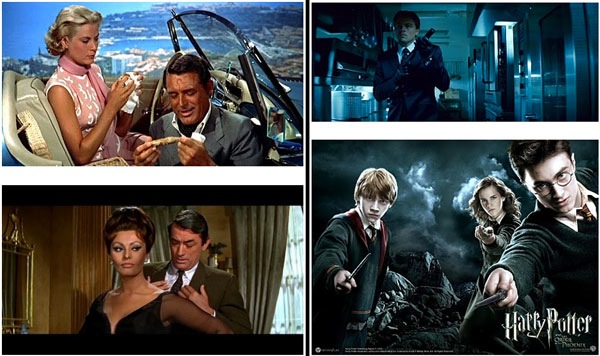


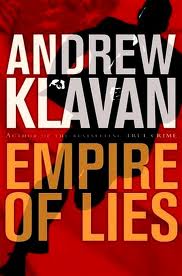 I think I’ve talked myself into liking the book.
I think I’ve talked myself into liking the book. This is a short book that collects some outrageous lawsuits and notes their results. They’re grouped by topic, and each features a clever picture of an actor portraying a shady lawyer. Each explanation of the lawsuit is a couple paragraphs. It’s like someone made a book of distilled “That’s Outrageous!” columns from Reader’s Digest and distilled them. It’s like
This is a short book that collects some outrageous lawsuits and notes their results. They’re grouped by topic, and each features a clever picture of an actor portraying a shady lawyer. Each explanation of the lawsuit is a couple paragraphs. It’s like someone made a book of distilled “That’s Outrageous!” columns from Reader’s Digest and distilled them. It’s like 
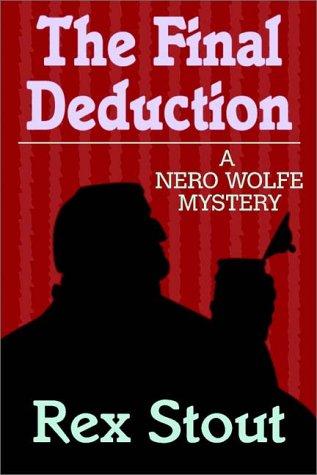 This is the third novel in the Three Aces omnibus edition I’ve been reading for quite some time now. Set in 1961, it deals with a rich woman who comes to Nero Wolfe to help ransom her kidnapped actor husband. Wolfe helps, gets his fee, but the freed husband dies in the family manse and the woman’s children come to Wolfe for help in recovering the ransom money. This leads to complications, including an arrest warrant for Archie Goodwin.
This is the third novel in the Three Aces omnibus edition I’ve been reading for quite some time now. Set in 1961, it deals with a rich woman who comes to Nero Wolfe to help ransom her kidnapped actor husband. Wolfe helps, gets his fee, but the freed husband dies in the family manse and the woman’s children come to Wolfe for help in recovering the ransom money. This leads to complications, including an arrest warrant for Archie Goodwin.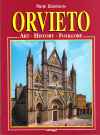 This book is a similar to
This book is a similar to 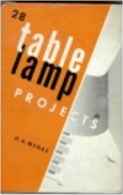 You can easily tell from the title what this book is: it is 28 projects for making table lamps out of wood and lamp kits. It’s a 1950s book, aimed for the high school shop market I think (at least, this particular book came from a high school library). It talks about the different styles within the book, from contemporary to more traditional. Strangely, sixty years later, even the “contemporary” styles are traditional. I mean, how many lamps made of wood have you seen recently?
You can easily tell from the title what this book is: it is 28 projects for making table lamps out of wood and lamp kits. It’s a 1950s book, aimed for the high school shop market I think (at least, this particular book came from a high school library). It talks about the different styles within the book, from contemporary to more traditional. Strangely, sixty years later, even the “contemporary” styles are traditional. I mean, how many lamps made of wood have you seen recently?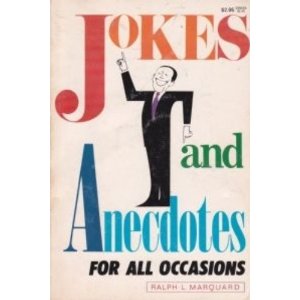 This book says “for all occasions,” but I get the sense from the nature of the gags that most were written for presentation at a Catskills resort in the middle part of the 20th century. Most of the jokes have a Jewish flavor, relying on characters named Moishe, Max, Shmuel, and so on who work in the garment district on Manhattan. Most, but not all. The books aren’t anti-semitic, but poke fun at some of the stereotypes as seen by New York comics.
This book says “for all occasions,” but I get the sense from the nature of the gags that most were written for presentation at a Catskills resort in the middle part of the 20th century. Most of the jokes have a Jewish flavor, relying on characters named Moishe, Max, Shmuel, and so on who work in the garment district on Manhattan. Most, but not all. The books aren’t anti-semitic, but poke fun at some of the stereotypes as seen by New York comics.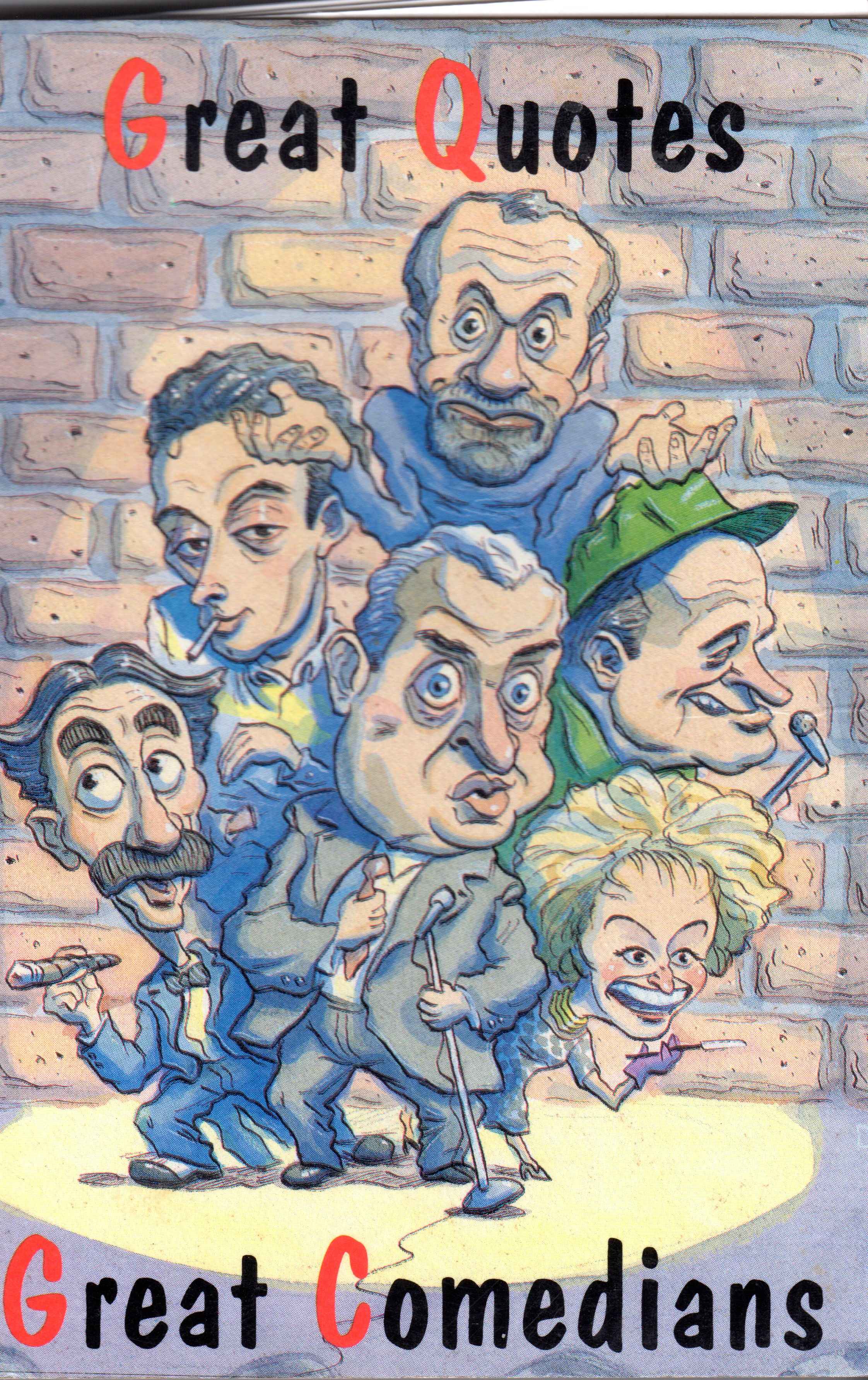 This is a simple book of one liners from famous comedians (circa 1996). The quotations are presented one to a page, and the book itself is comb-bound. So this is not Bartlett’s by any stretch.
This is a simple book of one liners from famous comedians (circa 1996). The quotations are presented one to a page, and the book itself is comb-bound. So this is not Bartlett’s by any stretch.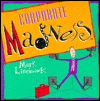 When I mentioned this book when
When I mentioned this book when 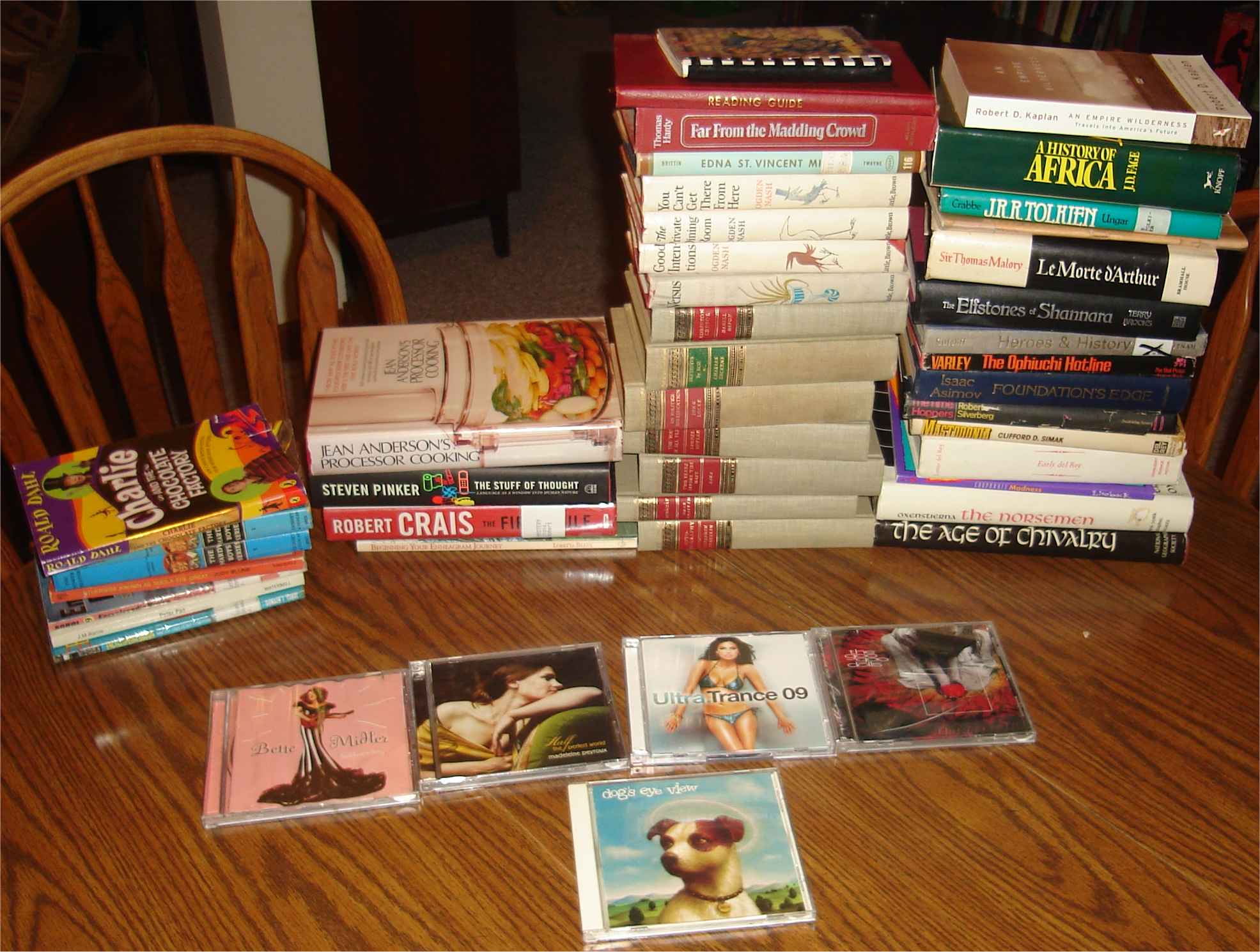
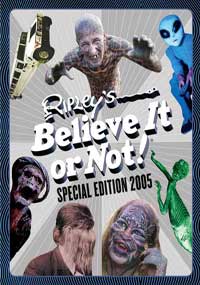 Apropos of nothing, the last book I reviewed was
Apropos of nothing, the last book I reviewed was